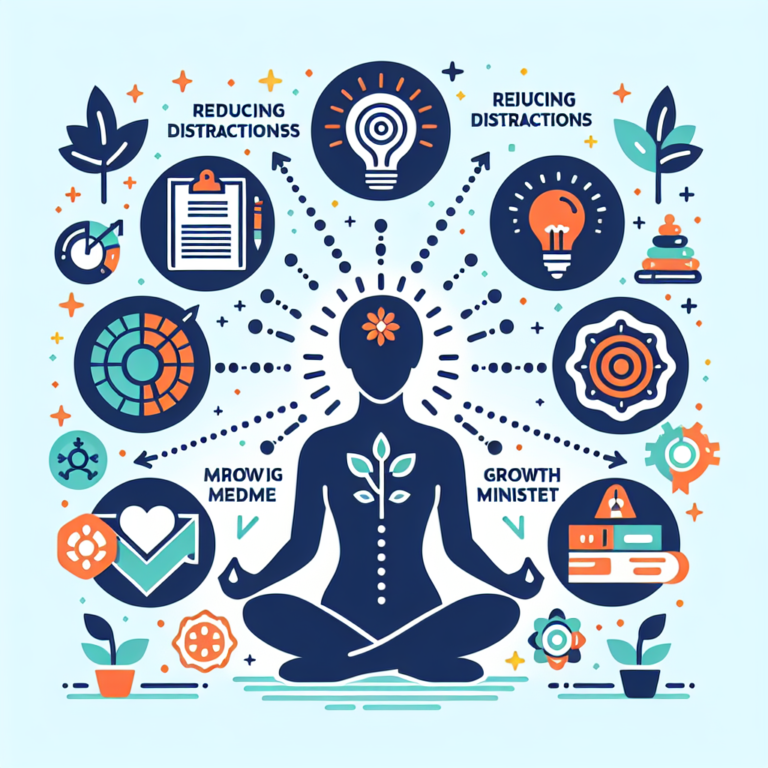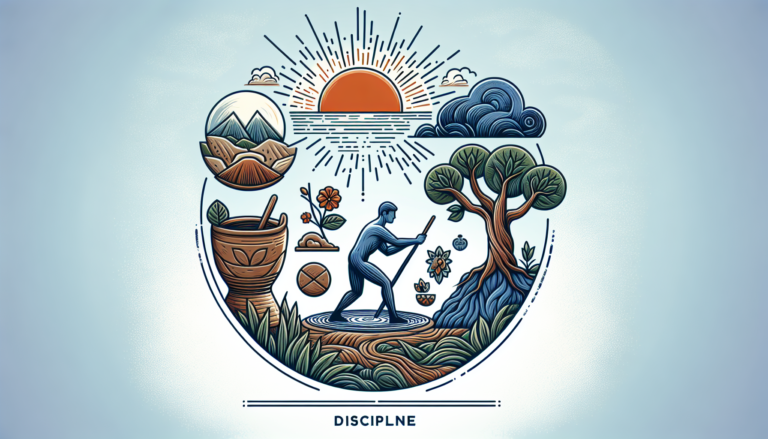How Mindfulness Transforms Everyday Life
Imagine a world where you can navigate each moment with clarity, peace, and intention. A world where stress and overwhelm no longer have a hold on you, and instead, you find yourself fully present and engaged in every experience. This is the transformative power of mindfulness. By incorporating this practice into your daily routine, you can cultivate a heightened sense of awareness and tap into a deeper connection with yourself and the world around you. In this article, we will explore how mindfulness has the potential to revolutionize your everyday life, bringing about profound shifts in your mindset, emotions, and overall well-being.

The Definition of Mindfulness
Understanding the concept of mindfulness
Mindfulness is the practice of paying full attention to the present moment, without judgment or distraction. It involves being fully aware of your thoughts, emotions, and physical sensations, as well as the environment around you. It is about being fully engaged in the present, rather than dwelling on the past or worrying about the future.
Why mindfulness is important in everyday life
Mindfulness is important in everyday life because it allows you to cultivate a deeper sense of self-awareness, enhance your well-being, and build better relationships with others. It helps you to slow down, appreciate the present moment, and experience life more fully. By practicing mindfulness, you can reduce stress, improve focus and productivity, and enhance your overall physical and mental health.
Benefits of practicing mindfulness
Practicing mindfulness on a regular basis can have a profound impact on your life. It can help reduce stress and anxiety, improve sleep quality, enhance emotional resilience, and boost immune function. Mindfulness can also promote better relationships by improving communication, empathy, and understanding. Additionally, it can enhance creativity, problem-solving abilities, and decision-making skills. Overall, practicing mindfulness can lead to a greater sense of well-being and a more fulfilling life.
Developing Mindfulness
Cultivating mindfulness through meditation
Meditation is one of the most effective ways to cultivate mindfulness. Through regular meditation practice, you can train your mind to focus on the present moment and observe your thoughts and emotions without judgment. By sitting in silence and focusing on your breath or a specific object, you can develop a heightened state of mindfulness that can be carried into your daily life.
Incorporating mindfulness into daily routines
In addition to formal meditation practice, you can incorporate mindfulness into your everyday activities. Whether it’s walking, eating, or even brushing your teeth, you can bring your full attention to the task at hand. By engaging all of your senses and being fully present in each moment, you can transform mundane activities into opportunities for mindfulness.
Practicing mindfulness in different environments
Mindfulness can be practiced in any environment, whether it’s at home, at work, or outdoors. In each situation, you can bring your attention to your breath, your senses, and your surroundings. By doing so, you can cultivate a sense of calm and presence, regardless of the external circumstances. Whether you’re stuck in traffic, attending a meeting, or enjoying a walk in nature, mindfulness can help you navigate each experience with greater clarity and ease.
Mindfulness in Relationships
Building better connections through mindfulness
Mindfulness can greatly enhance your relationships with others. By being fully present and attentive when interacting with others, you can show them that you value and respect them. This can lead to deeper connections and a greater sense of closeness. Mindfulness can also help you become more compassionate and understanding towards others, fostering a sense of harmony and empathy in your relationships.
Improving communication with mindfulness
Mindfulness can significantly improve communication by allowing you to listen more deeply and respond more mindfully. By being fully present and attentive, you can actively listen to what others are saying without interrupting or jumping to conclusions. This can lead to clearer and more effective communication, as well as a deeper understanding and connection with others.
Enhancing empathy and understanding
Mindfulness can cultivate empathy and understanding by helping you become more aware of your own emotions and the emotions of others. By being present and attentive, you can tune in to the subtle cues and signals that reveal someone’s emotional state. This can enable you to respond with greater empathy, compassion, and understanding, fostering more meaningful and fulfilling relationships.
Mindfulness and Emotional Well-being
Managing stress and anxiety through mindfulness
Mindfulness can be a powerful tool for managing stress and anxiety. By being present in the moment and observing your thoughts and emotions without judgment, you can create a space of calm and clarity. Mindfulness can help you break free from the cycle of rumination and worry, allowing you to respond to stressors in a more thoughtful and measured way.
Developing emotional resilience
Practicing mindfulness can enhance emotional resilience by allowing you to observe your emotions without being consumed by them. By developing the ability to step back and observe your thoughts and emotions from a place of non-judgmental awareness, you can cultivate a greater sense of equanimity and balance. This can help you navigate difficult emotions with more ease and bounce back from challenges more quickly.
Cultivating a positive mindset
Mindfulness can help cultivate a positive mindset by shifting your focus away from negative thoughts and emotions towards positive experiences and sensations. By training your mind to notice the good things in life, you can foster a sense of gratitude and appreciation. This can lead to a greater overall sense of well-being and happiness.

Mindfulness in the Workplace
Improving focus and productivity through mindfulness
Mindfulness can significantly improve focus and productivity in the workplace. By practicing mindfulness, you can train your mind to stay present and focused on the task at hand, minimizing distractions and increasing efficiency. Mindfulness can also enhance your ability to stay engaged and innovative, leading to increased creativity and problem-solving skills.
Enhancing problem-solving skills
Mindfulness can enhance problem-solving skills by allowing you to approach challenges with a clear and calm mind. By observing your thoughts and emotions without judgment, you can free yourself from limiting beliefs and biases that may hinder creative thinking. Mindfulness can foster a sense of open-mindedness and curiosity, enabling you to see new possibilities and arrive at innovative solutions.
Reducing workplace stress
Workplace stress can have a significant impact on overall well-being and productivity. Mindfulness can help reduce workplace stress by allowing you to manage your response to stressors more effectively. By cultivating a sense of presence and non-judgmental awareness, you can respond to stressful situations with greater clarity and composure. This can lead to a more positive and harmonious work environment.
Mindfulness and Physical Health
Promoting better sleep with mindfulness
Mindfulness can promote better sleep by helping you relax and quiet your mind before bedtime. By practicing mindfulness techniques such as deep breathing and body relaxation, you can signal to your body that it is time to rest and unwind. Mindfulness can also help reduce racing thoughts and anxiety, allowing you to fall asleep more easily and enjoy a more restful night’s sleep.
Reducing chronic pain through mindfulness
Mindfulness can be a valuable tool for managing chronic pain. By bringing your attention to the present moment and observing your sensations without judgment, you can change your relationship with pain. Mindfulness can help you develop a greater sense of acceptance and non-resistance towards pain, allowing you to experience it with less suffering. This can lead to a better quality of life and improved physical well-being.
Boosting immune function and overall health
Research has shown that practicing mindfulness can have a positive impact on immune function and overall health. By reducing stress and promoting relaxation, mindfulness can support a healthy immune system. Additionally, mindfulness can help regulate blood pressure, improve digestion, and reduce inflammation, leading to improved overall physical health and well-being.
Mindfulness and Self-Reflection
Gaining self-awareness through mindfulness
Mindfulness can be a powerful tool for gaining self-awareness. By observing your thoughts, emotions, and physical sensations without judgment, you can develop a deeper understanding of yourself. Mindfulness can help you become aware of patterns, habits, and limiting beliefs that may be holding you back. This self-awareness can empower you to make positive changes and live a more authentic and fulfilling life.
Exploring personal values and beliefs
Mindfulness can provide a space for exploring and clarifying your personal values and beliefs. By taking the time to reflect and contemplate, you can gain insight into what truly matters to you. Mindfulness can help you align your actions with your values, leading to a greater sense of purpose and fulfillment.
Enhancing self-compassion and self-acceptance
Mindfulness can enhance self-compassion and self-acceptance by allowing you to observe your thoughts and emotions without judgment or self-criticism. By cultivating an attitude of kindness and non-judgmental awareness towards yourself, you can develop a greater sense of self-compassion and acceptance. This can lead to improved self-esteem, resilience, and overall well-being.
Mindfulness in Decision-Making
Making better choices through mindfulness
Mindfulness can help you make better choices by allowing you to bring greater awareness and clarity to the decision-making process. By observing your thoughts, emotions, and physical sensations without judgment, you can gain insight into what truly aligns with your values and goals. Mindfulness can help you make decisions that are more thoughtful, intentional, and aligned with your authentic self.
Overcoming cognitive biases
Cognitive biases are inherent flaws in the way we perceive and interpret information, often leading to biased decision-making. Mindfulness can help overcome cognitive biases by allowing you to observe your thoughts and emotions with a sense of non-judgmental awareness. By becoming aware of your own biases, you can challenge them and make more objective and rational decisions.
Applying mindfulness to complex decisions
Complex decisions often require a deeper level of reflection and consideration. Mindfulness can be a valuable tool in navigating complex decisions by providing a space for thoughtful contemplation and awareness. By cultivating a sense of open-mindedness and non-attachment, you can approach complex decisions with greater clarity, creativity, and confidence.
Mindfulness and Creativity
Unlocking creative potential with mindfulness
Mindfulness can help unlock your creative potential by allowing you to tap into your innate curiosity and imagination. By creating a space for stillness and presence, you can access deeper levels of creativity and inspiration. Mindfulness can help you quiet the noise of the mind, allowing creative ideas and insights to arise more freely.
Expanding divergent thinking
Divergent thinking is the ability to generate multiple ideas and perspectives. Mindfulness can enhance divergent thinking by allowing you to observe your thoughts without judgment and expand your own mental boundaries. By cultivating a sense of openness and curiosity, you can explore new possibilities and think more creatively.
Enhancing problem-solving abilities
Mindfulness can enhance problem-solving abilities by enabling you to approach challenges with a fresh perspective. By observing your thoughts and emotions without attachment, you can break free from habitual thinking patterns and discover new solutions. Mindfulness can foster a sense of clarity and creativity, allowing you to approach problems with greater resourcefulness and adaptability.
Conclusion
Mindfulness is a powerful practice that can transform everyday life in numerous ways. By cultivating mindfulness, you can enhance your well-being, build better relationships, and improve various aspects of your life. Whether it’s through meditation, incorporating mindfulness into daily routines, or practicing mindfulness in different environments, there are countless opportunities to develop mindfulness. From managing stress and anxiety to boosting creativity and problem-solving abilities, the benefits of mindfulness are extensive. By embracing mindfulness, you can cultivate a greater sense of presence, clarity, and happiness in all aspects of your life.







